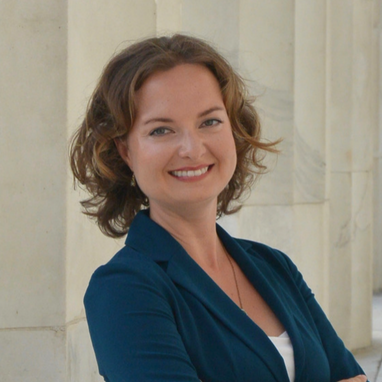So why become a clinical supervisor for graduate students?
Here are the top 7 reasons:
1. Giving Back
We were all students before we were Speech-Language Pathologists.
We all needed supervision and guidance as we learned how to write goals, complete a diagnostic, provide treatment, and interact with caregivers.
As we gain more experience throughout our career, it is easy to forget what it was like to be on the other end of the learning curve and just how scary that process was.
Taking on a graduate student is a great way to give back to our field because universities and students need you and your expertise.
Graduate students must complete 375 clock hours in direct contact with a patient/client.
With all of the settings in which SLP’s can work, there is no way to teach students everything they need to know in a classroom or campus clinic.
Students need hands on experience in a variety of settings to learn caseload management, report writing systems, goal writing, etc.
We each have an obligation to do what we can to help our discipline grow and give back to a community that once took the time to teach you.
Now it’s your turn!
2. Stay up to Date
Graduate students are enrolled in a university graduate program and learning the most up to date information in our field.
They have direct access to professors, research, textbooks, and lots of materials which they will enthusiastically share with clients and you.
It’s a great way to gain a new perspective on treatment and best new practices.
Additionally, the universities understand that supervision is a commitment on your part and want to give back to you so they may offer free CEU courses on a variety of topics to help you meet ASHA and state requirements.
3. Networking
By working with graduate students, you have the opportunity to interact and network with more professionals in our field.
You will build stronger relationships with the university, which can lead to collaborative projects, opportunities for guest lecturing, or job growth.
Two of my colleagues moved into academia full time after being an externship supervisor at a hospital for several semesters.
In some SLP careers, being a mentor is a step toward the next promotion.
You will learn more about the graduate student and shape their career trajectory.
You will have an impact on the kind of SLP and professional they become.
Speech pathology is a small world and students like to keep in touch with previous supervisors as their career progresses and evolves.
4. Making a Difference
Many SLPs originally went into this field because they felt a deep desire to make an impact on the world around them.
We understand that communication is the essence of life.
Helping others comes naturally to us.
What better way to reach more people in need of our services than by training more SLPs to go out into the world and make connections with more people?
5. Gain a CF or Future Employee
A lot of graduate students end up accepting a CF position with one of their externship placements.
Taking on a graduate student is a great way to get to know them, their work ethic, and educate them with your facility requirements.
It is also common for students to keep in touch with their externship supervisor and interview for jobs after they complete their CF when a job in that setting becomes available.
6. Improve Your Own Skills Through Teaching
Students make you think, explaining your rationale for treatment techniques or decisions that you might routinely make.
This keeps you on your toes!
It’s also a fun way to try something new.
There are redundant things about each setting and working with a student helps you see it in a fresh way.
Sometimes SLPs begin to feel exhausted and/or monotonous after working with one population for a while.
Teaching a student can often give you the re-charge that you need.
7. Help with Your Caseload
Graduate students are itching to get their hands dirty.
They are there to learn the ins and outs of your caseload from the beginning of each day to closing time.
While any new learning curve takes time, you may realize very quickly that having a graduate student helps you get more tasks done in an efficient manner.
Most supervisors have the student start with observing them in sessions and reviewing patient/client files.
Gradually, the student takes over the caseload and documentation.
By the end of the placement, the graduate student is independent with planning, implementing sessions, and writing documentation.
Of course, this process still must follow ASHA’s supervision policy that a minimum of 25% of patient/client contact time be directly observed and all documentation must be reviewed and signed by the licensed SLP.
Next Steps!
- When you are ready to take on a graduate student for his/her externship, contact a university in your area and ask about their process. They will be grateful!
- Don’t worry about distance- many students commute from a distance to campus, so there may be a graduate student who lives near your facility and would love the opportunity to work with you.
- Additionally, some programs give students an opportunity to complete an ‘away’ externship during one semester so they can be farther away from campus without having to worry about classes.
These ‘away’ externships can be done around the U.S. or even internationally as long as there is an ASHA certified SLP to provide supervision.
Some programs provide other benefits to supervisors including an honorarium meant to cover any unforeseen and unliklely costs that may come up.
Be sure to ask what they offer so you can receive all of the benefits!
- Once a graduate student is assigned to you, you may have the opportunity to meet with him/her prior to the beginning of the placement.
- Take the time to get to know the student and the university’s expectations in addition to setting your own expectations.
- Reviewing the little things like start and end time each day, dress code, and your supervision style can go a long way.
Students have had a variety of experiences before beginning a placement and are often quite flexible, but setting expectations up front will set them and you up for success so you both have a great, fulfilling experience!









